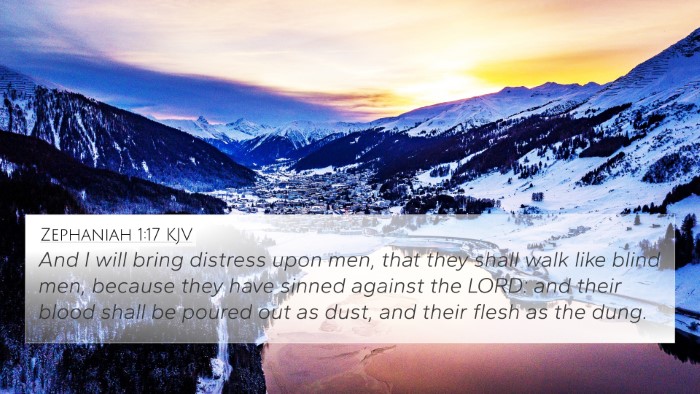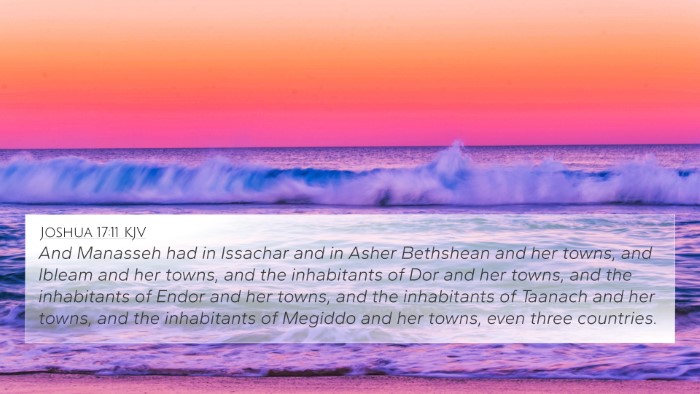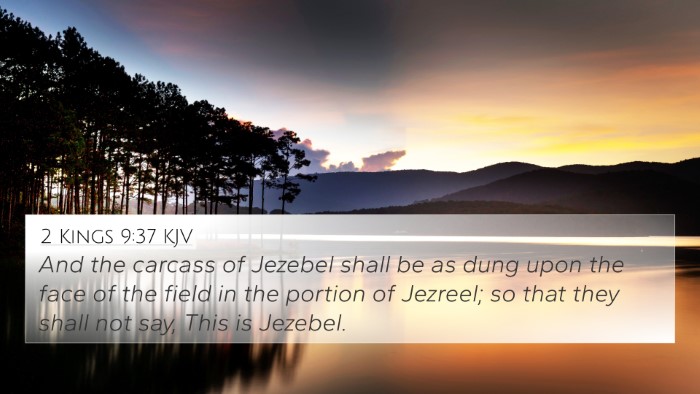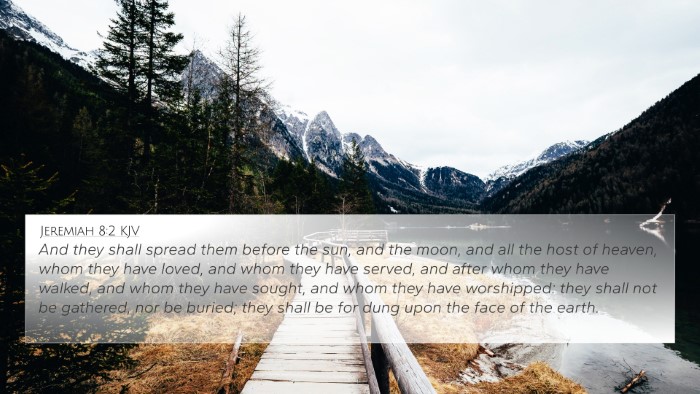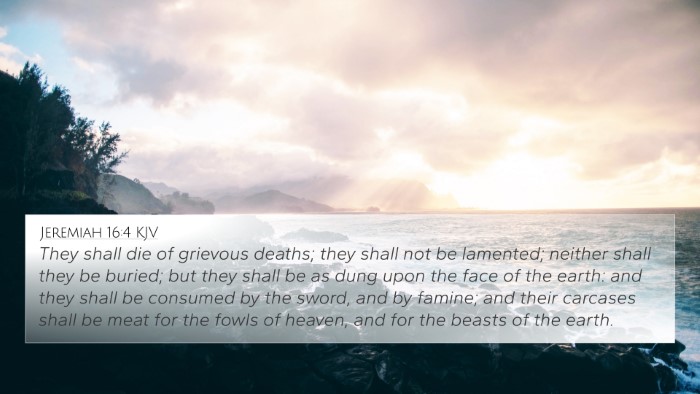Psalms 83:10 - Understanding the Verse
Bible Verse: Psalms 83:10 - "They were destroyed at En-dor; they became like dung for the ground."
Verse Meaning
This verse is part of a larger psalm that calls for God's intervention against Israel's enemies. The reference to En-dor mentions a specific battle, signifying a complete defeat. The imagery of becoming like dung highlights the ultimate disgrace of these foes and serves as a warning to those who oppose God's people.
Commentary Insights
-
Matthew Henry:
Henry emphasizes that the mention of En-dor serves to evoke the memory of Israel's victories where their enemies faced divine retribution. The enemies' destruction depicts God's justice and serves as a reminder of the fate awaiting those who strive against His chosen people.
-
Albert Barnes:
Barnes highlights the metaphorical importance of the term "dung," suggesting that the enemies were not only defeated but rendered utterly worthless and contemptible. This fulfills the promise of God’s protection over Israel and reassures the faithful of His sovereignty.
-
Adam Clarke:
Clarke points out that the reference to En-dor connects with historical events where enemies fell before the Israelite armies. This historical context demonstrates God's involvement in battles, signifying His role in the protection and victory of His people.
Cross-References
Several Bible verses relate directly or thematically to Psalms 83:10, illustrating the broader context of divine judgment and protection:
- Psalms 44:5: "Through You we will push back our adversaries; through Your name we will trample down those who rise up against us."
- Psalms 129:5: "May all who hate Zion be turned back in shame."
- Isaiah 41:11: "Behold, all those who are incensed against you shall be ashamed and disgraced; they shall be as nothing, and those who strive with you shall perish."
- Micah 5:9: "Your hand shall be lifted over your adversaries, and all your enemies shall be cut off."
- Romans 8:31: "What then shall we say to these things? If God is for us, who can be against us?"
- 2 Thessalonians 1:6: "Since indeed God considers it just to repay with affliction those who afflict you."
- Hebrews 10:30: "For we know Him who said, 'Vengeance is Mine; I will repay.'"
Thematic Connections
The themes present in Psalms 83:10 resonate throughout Scripture, highlighting God's justice, the fate of the wicked, and the assurance given to His people. These themes can be further explored by considering:
- The protective nature of God: Many verses highlight how God defends His people against their foes.
- The destiny of evildoers: Several scriptural passages address the ultimate failure of those who oppose God.
- Historical examples of divine intervention: Various Biblical accounts recount instances where God intervened for the sake of His people.
- Assurance of victory: The theme of God granting victory reflects the overarching narrative of God's promises.
Cross-Referencing Insights
For those studying the Bible, understanding the interconnectedness of verses is crucial. Psalms 83:10 can serve as a focal point in a larger scope of themes such as:
- Linking Biblical texts: Explore how the Old Testament connects with the New Testament through themes of divine justice.
- Comparative Biblical verse analysis: Compare different accounts of Israel's victories with the outcomes of their enemies.
- Tools for Bible cross-referencing: Utilize a concordance or Bible software to delve deeper into these connections.
- Bible reference resources: Refer to commentary works for detailed interpretations and thematic studies.
Study Applications
When studying Psalms 83:10, consider the following applications:
- Reflect on God’s faithfulness in battle and how it applies to personal struggles.
- Evaluate the characteristics of the enemies of God's people as portrayed in various scriptures.
- Analyze how the themes of judgment and vindication are present in biblical narratives.
- Incorporate cross-referencing methodologies to enrich scripture studies for deeper understanding.



